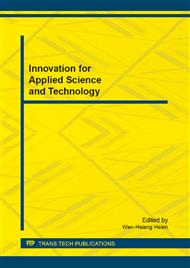p.883
p.888
p.894
p.898
p.903
p.908
p.915
p.919
p.925
Reliability Test of a Rule-Based SCR Control Strategy for Cleaner Heavy-Duty Diesel Engine using Biodiesel Blend
Abstract:
A rule-based SCR control strategy is developed for a 5% biodiesel fueled heavy-diesel engine. The control objective is to reduce the tail-pipe NOx emission while minimizing the urea dosage in a reliable fashion. A total of 32 runs of experimental test in ESC and ETC driving modes are conducted to demonstrate the performance and reliability of the rule-based control strategy. Average NOx reduction rates of 78.5% and 60% are achieved for the ESC and ETC tests respectively. In the mean time, the average urea dosage is 160 gram for the ESC tests and 0.49 % of the fuel consumption for the ETC tests. Variation of less than 7.78% and 12.05% for the ESC and ETC tests respectively demonstrate the reliability of the rule-based control strategy.
Info:
Periodical:
Pages:
903-907
Citation:
Online since:
January 2013
Authors:
Price:
Сopyright:
© 2013 Trans Tech Publications Ltd. All Rights Reserved
Share:
Citation:


